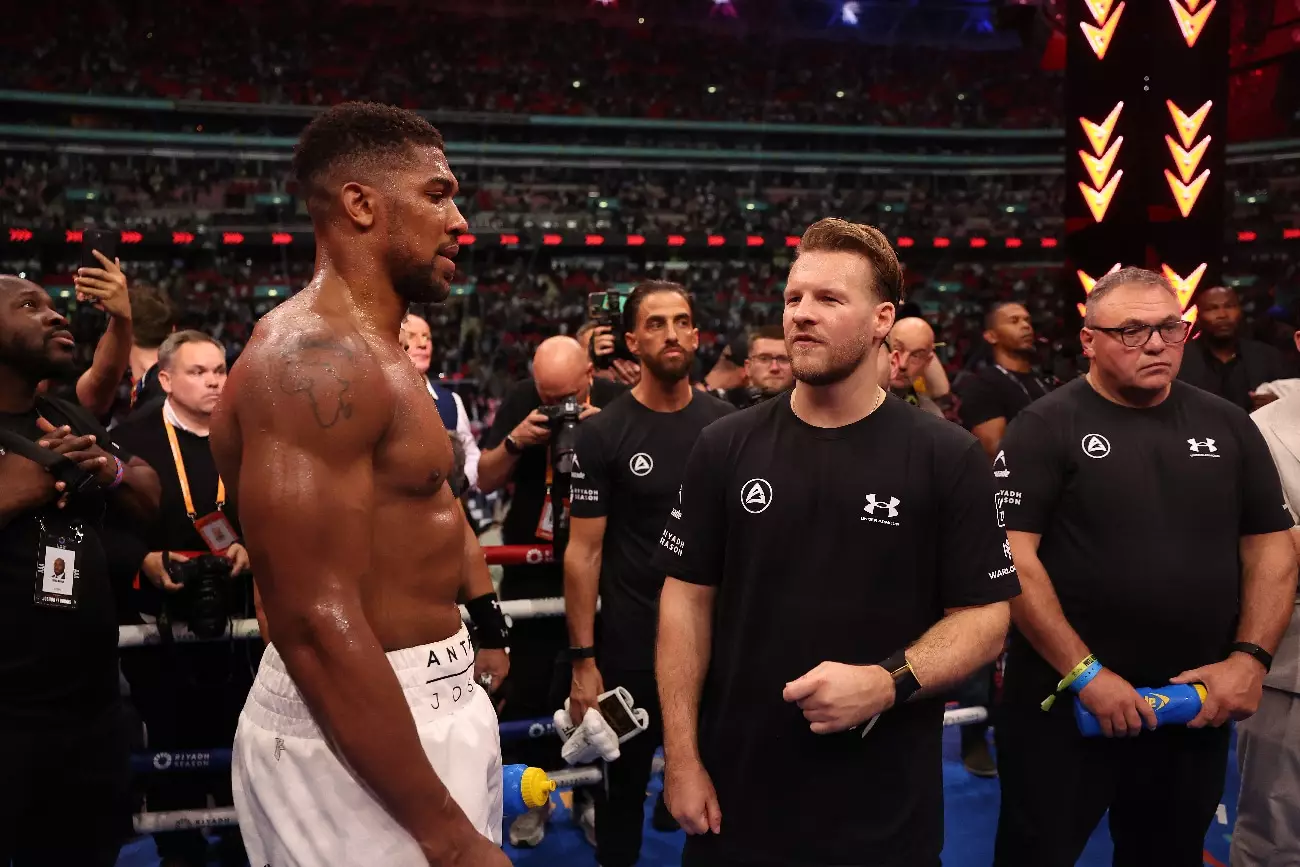BY BOXING HIT STAFF-
The heavyweight boxing scene has always been a tumultuous arena, and Anthony Joshua’s recent bout against Daniel Dubois is a vivid illustration of the unpredictability inherent in the sport. Once hailed as a titan with the potential to dominate his division, Joshua’s defeat has cast a shadow over his career, prompting reflection on both strategy and execution. This recent fight, particularly the pivotal fifth round, serves as a critical case study on the importance of tactical acumen in boxing, especially for a fighter of Joshua’s caliber.
Joshua’s remarks following the fight, where he expressed regret for having succumbed to an aggressive brawl, expose a fundamental misreading of how to approach a high-stakes heavyweight encounter. Describing his approach as lacking a “sniper-esque” precision, Joshua acknowledges a glaring deficiency in his strategy. His attempt to engage Dubois in a slugfest rather than rely on calculated, sharp strikes not only proved detrimental; it led to a swift and definitive knockout that sent ripples through his fanbase and the boxing community at large.
In combat sports, the margin for error is astonishingly slim; one strategic miscalculation can result in defeat. Joshua’s experience in the ring should have equipped him with the insight needed to navigate such pivotal exchanges. Yet, during the initial rounds, he seemed scarcely engaged, showing a hesitance that belied his training and experience. Perhaps even more alarming was his admission that he failed to adapt his game plan when faced with adversity. The early knockdown revealed not just a physical vulnerability but a psychological chink in the armor, while his later desire to reciprocate fire in an uncontrolled manner highlighted his inability to respond strategically under pressure.
Boxing aficionados have long speculated about Joshua’s capacity to withstand a hard-hitting opponent—a skepticism that has only intensified following this latest bout. Joshua’s unwillingness to utilize the seasoned technique of accurate shots and defensive maneuvers showcased a departure from the disciplined fighter he once was. Many would argue that had he harnessed his experience and allowed calculated strikes rather than indiscriminate power punches, the fight could have turned out much differently.
The fallout from such a loss inevitably provokes difficult questions about Joshua’s future in the sport. Will he now be regarded as a fighter on a downward trajectory, unable to regain his former glory? His insistence that he is prepared to fight on, despite calls from fans and pundits alike speculating on potential retirement, reflects a fighter grappling with the weight of expectation versus the reality of his performance.
The notion of activating a rematch clause against Dubois is indeed a compelling option; it represents a chance not only for redemption but to establish once more his position at the elite level of heavyweight boxing. However, skepticism remains. A return bout, while promising for fans yearning for a resurrection of Joshua’s reputation, will require that he re-evaluates not just his approach within the ring but also his psychological readiness to face formidable opponents who have capitalized on his recent vulnerabilities.
Joshua’s admissions reveal an opportunity for growth rather than despair, emphasizing that even the most celebrated athletes must confront their limitations. The world of boxing demands perpetual evolution; stepping back to review the technical aspects of his game could be a critical step for Joshua if he is to reclaim his former status. By embracing the lessons from this fight—to think strategically rather than brawl instinctively—Joshua can rediscover the very essence of what made him a champion.
The aftermath of Joshua’s loss to Dubois prompts deep introspection not merely for the fighter himself but for the sport of boxing as a whole. It serves as a reminder that success is rooted in both physical prowess and cerebral strategy, an intricate dance that requires both finesse and ferocity. As he contemplates his next steps, all eyes will remain on Anthony Joshua; will he rise to the occasion or continue to falter in the face of adversity? The answers lie ahead in the unfolding narrative of his storied career.


Leave a Reply